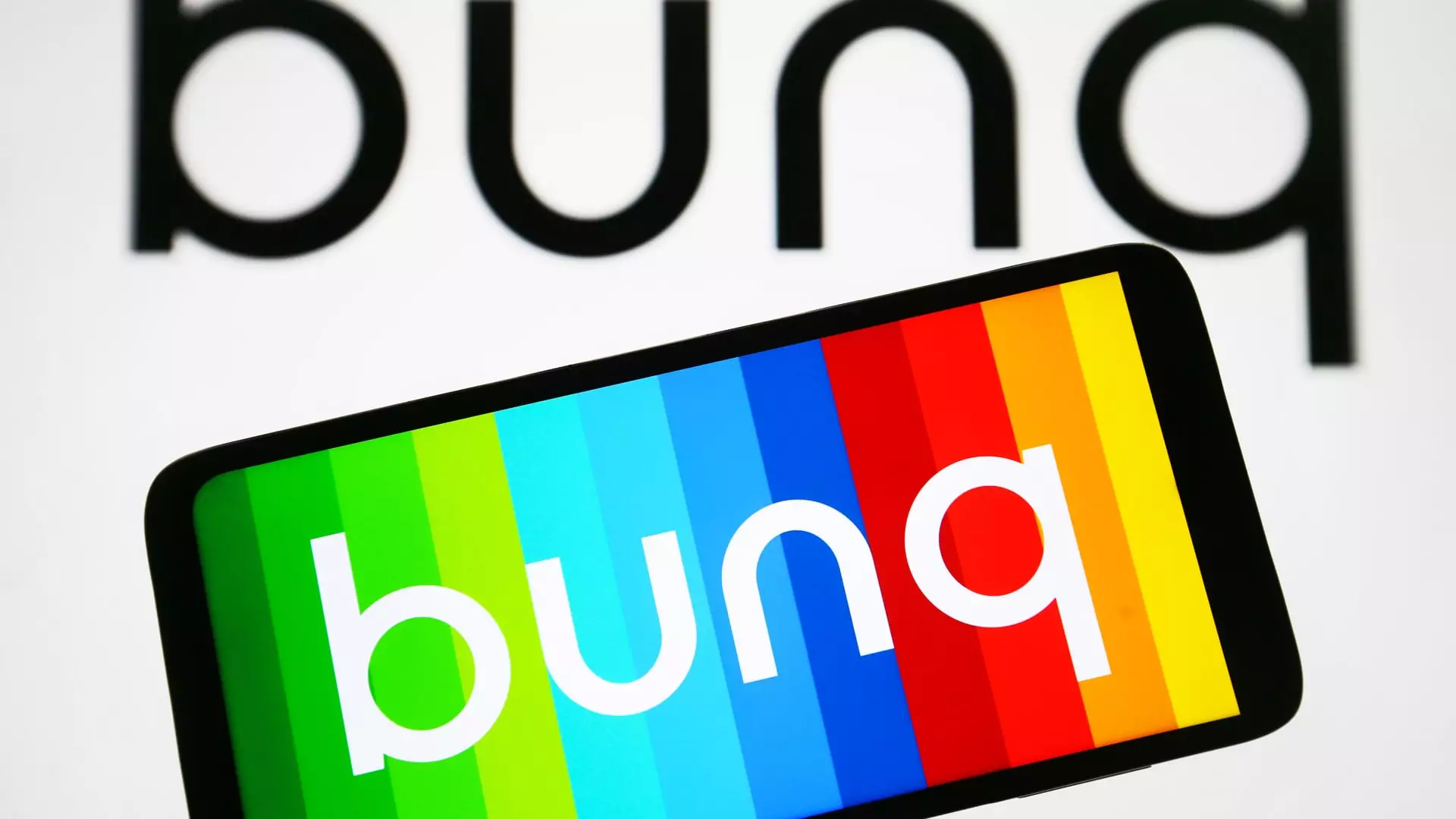Bunq, the Dutch digital bank, has recently announced a significant strategic move—its application for broker-dealer registration in the United States. This bold endeavor reflects the innovative spirit of Bunq, which has carved a niche for itself by catering to the increasingly mobile workforce known as “digital nomads.” In an era where more individuals seek financial solutions that transcend geographical boundaries, Bunq positions itself as a vital ally for those who live and work remotely from various locations. With a mission centered around flexibility and convenience, the bank’s expansion plans will likely enhance its visibility and user engagement within this burgeoning demographic.
The Journey to U.S. Banking: Licensing Challenges
CEO Ali Niknam elucidated that this broker-dealer application serves as a foundational step toward obtaining a comprehensive banking license in the U.S. While Niknam is optimistic about Bunq’s growth prospects, he admits that a precise timeline for achieving full authorization remains vague. This is not the first time Bunq has sought a foothold in the U.S.—the bank initially filed for a Federal banking charter in April 2023 but later retracted the application due to complications arising from the regulatory frameworks of both Dutch and U.S. authorities.
Such administrative hurdles are not uncommon in the fintech landscape, where navigating the regulatory environment proves to be a double-edged sword. While regulations are crucial for safeguarding consumers, they can hinder the agility needed for rapid expansion. Niknam’s transparency regarding the challenges faced by the bank adds a layer of authenticity to Bunq’s narrative, allowing stakeholders to appreciate not only the ambition but also the reality of the financial services industry.
Market Positioning: Addressing the New Age Demand
Bunq has built its reputation as a bank that serves the needs of those who frequently traverse borders—perfectly aligning its product offerings for a user base that values access to banking services from virtually anywhere. The forthcoming broker-dealer authorization will enable Bunq to roll out a host of services tailored to international users, a move that does not merely capitalize on a trend but addresses a fundamental shift in how work is conducted in the 21st century.
However, one service—savings accounts—will remain off the table even after securing broker-dealer status. While this restriction may seem like a drawback, it places Bunq in a unique position. By focusing on products that cater to immediate transactional needs and investment functionalities, the bank may attract users eager to utilize their funds for trading or other investment opportunities rather than merely saving.
Financial Performance: Riding the Interest Wave
Recent financial disclosures have revealed a remarkable 65% increase in profits year-over-year, boasting earnings of 85.3 million euros ($97.2 million). Much of this upswing can be attributed to a sharp increase in net interest income, as Bunq has effectively leveraged a high interest rate climate—a savvy move often seen among fintech rivals like N26 and Monzo. The efficiency of Bunq’s operations, highlighted by its lean structure, has allowed the bank to deliver appealing interest rates to clients while simultaneously improving its bottom line.
Nevertheless, Niknam acknowledges that the current high interest rate environment is not guaranteed to last. With central banks across Europe and the U.S. considering cuts in response to declining inflation and potential economic slowdowns, there are intrinsic risks to this business model. However, Bunq’s diversified revenue mix, encompassing paid subscription products and unique features, may mitigate these risks. This forward-thinking approach is reminiscent of the need for resilience in a rapidly evolving market.
The Competitive Landscape: Standing Out in a Crowded Market
As Bunq sets its eyes on the U.S. market, the landscape presents both opportunities and daunting competition. The American banking sector is saturated with established players like JPMorgan Chase and major fintech brands such as Chime and Robinhood. For a startup like Bunq, breaking through this clutter requires not only innovative products but also a strong brand narrative that resonates with an increasingly discerning customer base.
The emphasis on being a modern bank for digital nomads may give Bunq a competitive edge, especially as lifestyle and work preferences evolve toward remote and flexible solutions. This niche focus is crucial for differentiating Bunq from traditional banks and even other fintech solutions that, while robust, might not cater specifically to the unique needs of constantly on-the-move clients.
In this context, Bunq’s ambitious maneuvering reflects an understanding of the changing tides of consumer behavior—one that transcends geographical barriers and seeks a banking experience resonant with the ideals of freedom and flexibility. By positioning itself to be a relevant player in both European and American markets, Bunq is not just expanding; it’s reinventing what it means to be a bank in the digital age.

